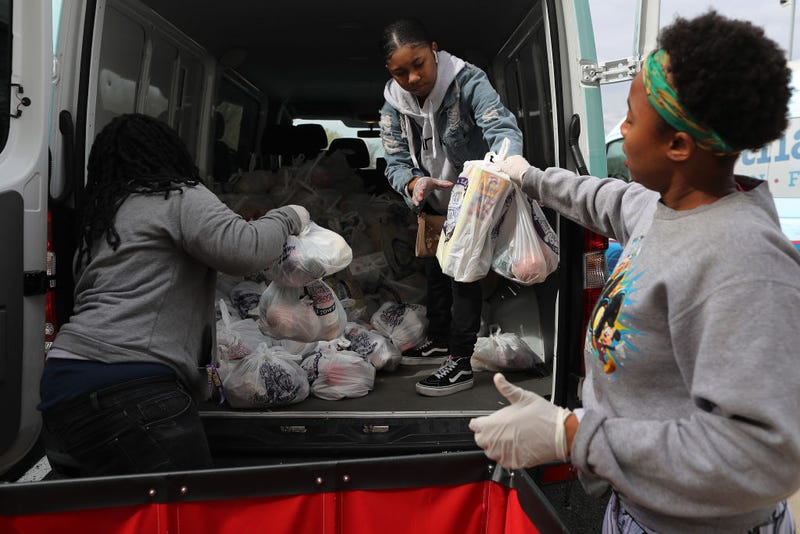
While the pandemic has affected almost every aspect of people's lives over the last almost two years, it has especially illuminated the social and economic disparities between certain groups of the population.
Now, a new analysis by researchers published last week in a public health journal shows just how much, by highlighting the impacts on vulnerable people.

But the revelations aren’t actually all that surprising, according to Dr. Panagis Galiatsatos, an assistant professor of pulmonary and critical care medicine at the Johns Hopkins School of Medicine on KCBS Radio's "Ask an Expert" with Holly Quan and Eric Thomas on Thursday.
"These are the same populations that have always been ravaged, in regards to disparities, meaning preventable health issues that we are unjustly allowing," he said.
The hope is that with recognizing this divide, change can begin in earnest to help everyone receive adequate medical care. "This pandemic has been one of a social reckoning as well," he said.
The divide extends beyond just access to health care. It can be boiled down to even where people live. According to the analysis, by looking at socio-economically disadvantaged neighborhoods, it’s clear that people can’t always even get access to healthy foods, said Galiatsatos.
These neighborhoods "create an underlying level of inflammation that’s going to contribute to things like diabetes and high blood pressure," he said. "Pre-existing conditions that we know are part of worse cases of severe COVID-19."
These populations faced other barriers as well, such as access to testing, face masks, and other services.
An important element to bridging these divides is community engagement. "We can't sit back in our ivory towers of hospitals and expect whatever we put out people are just going to take and accept and believe," said Galiatsatos.
Medical professionals should partner with community leaders to help better disseminate services and information, he said.
Some communities have deep-seated mistrust in the medical establishment after historical wrongdoings, such as the Tuskegee experiment, where Black men were made subjects of a syphilis study under false pretenses.
The best way to approach this mistrust, is to acknowledge the mistakes of the past, said Galiatsatos. "If you want to earn their trust and establish a great relationship, you consistently show up and listen to what the community wants out of health."

